If you are part of an oil palm smallholder group and are seeking potential financial or non-financial support, we invite you to participate in this platform.
It provides an opportunity for you to connect with facilitators or market players and create more awareness about your project.
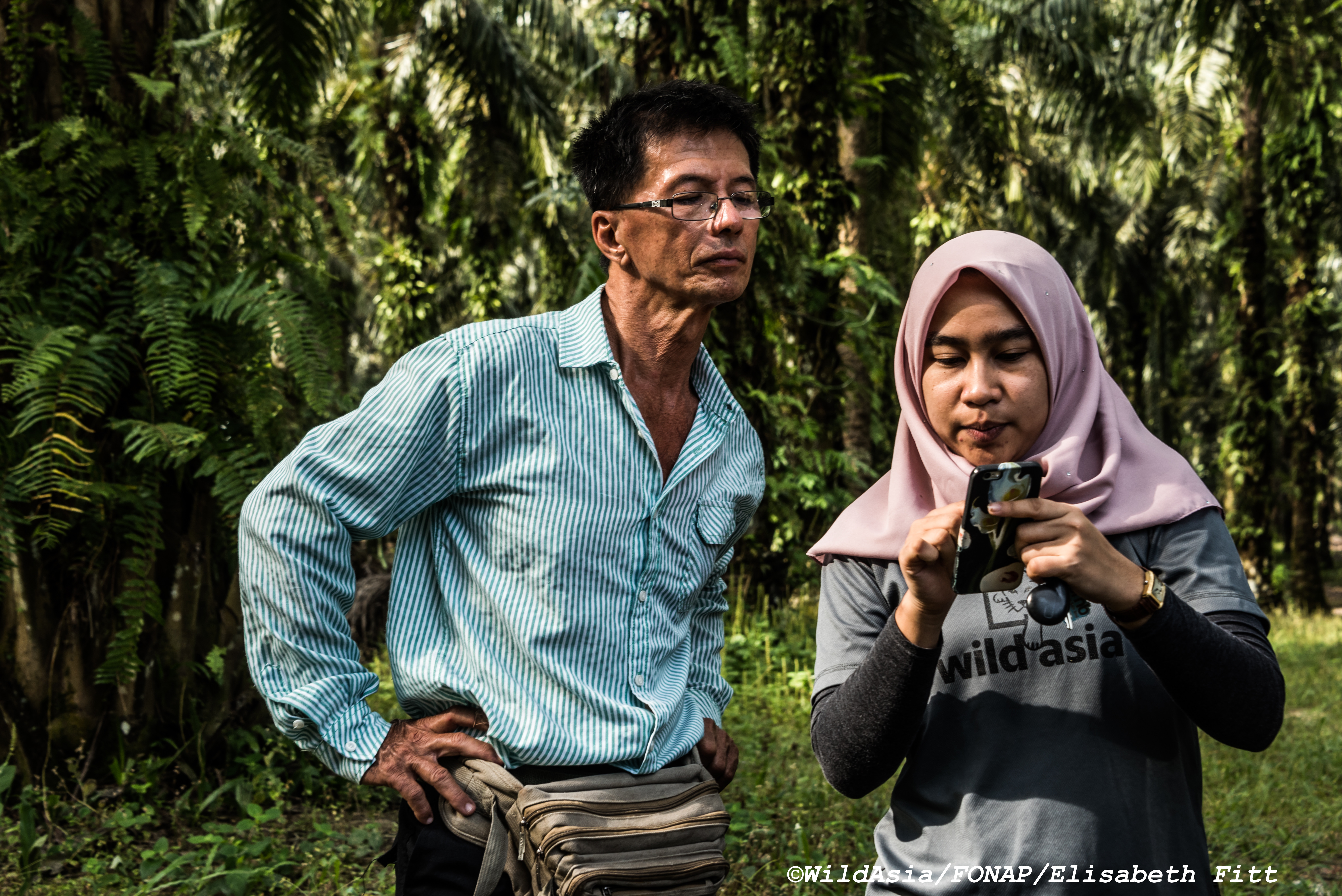
• WAGS Perak
Supply Chain Partner
Expected Outcome: Key Perormance Indicators (KPIs): Progressive growth of WAGS-supported producers (area, total production), that are connected to one-many local (supply chain partners) partners and global palm oil suppliers (refiners).
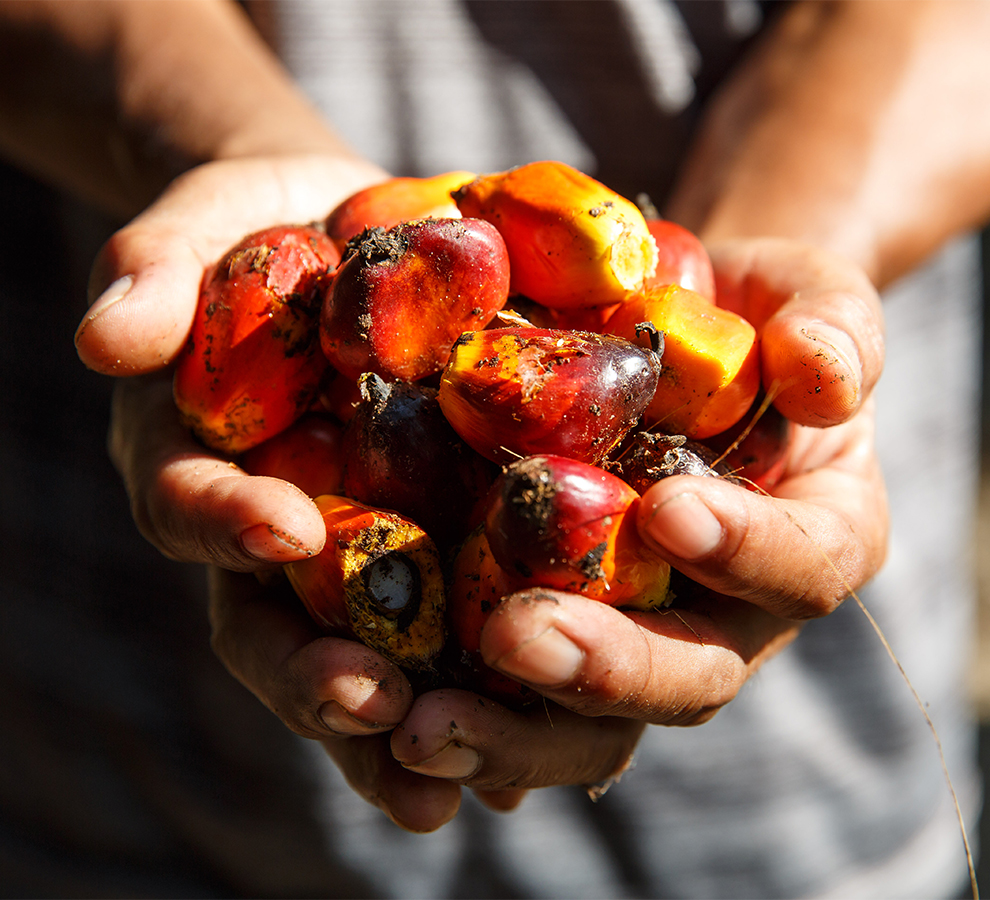
• Solidaridad
The project implements a Farmer Field School where oil palm smallholders are trained on good agricultural practices as well as farm management according to sustainable social and environmental standards. To date, 1,000 smallholders have graduated from the Farmer Field School. In addition, the project provides education in financial literacy so that farmers learn about responsible savings, spending, lending and investment. To date, 5,500 people (44% women) have graduated from the Financial Literacy course.
The project aims to improve the living conditions of the people in the farming areas by improving agricultural practices, increasing yields and helping preserve forests.
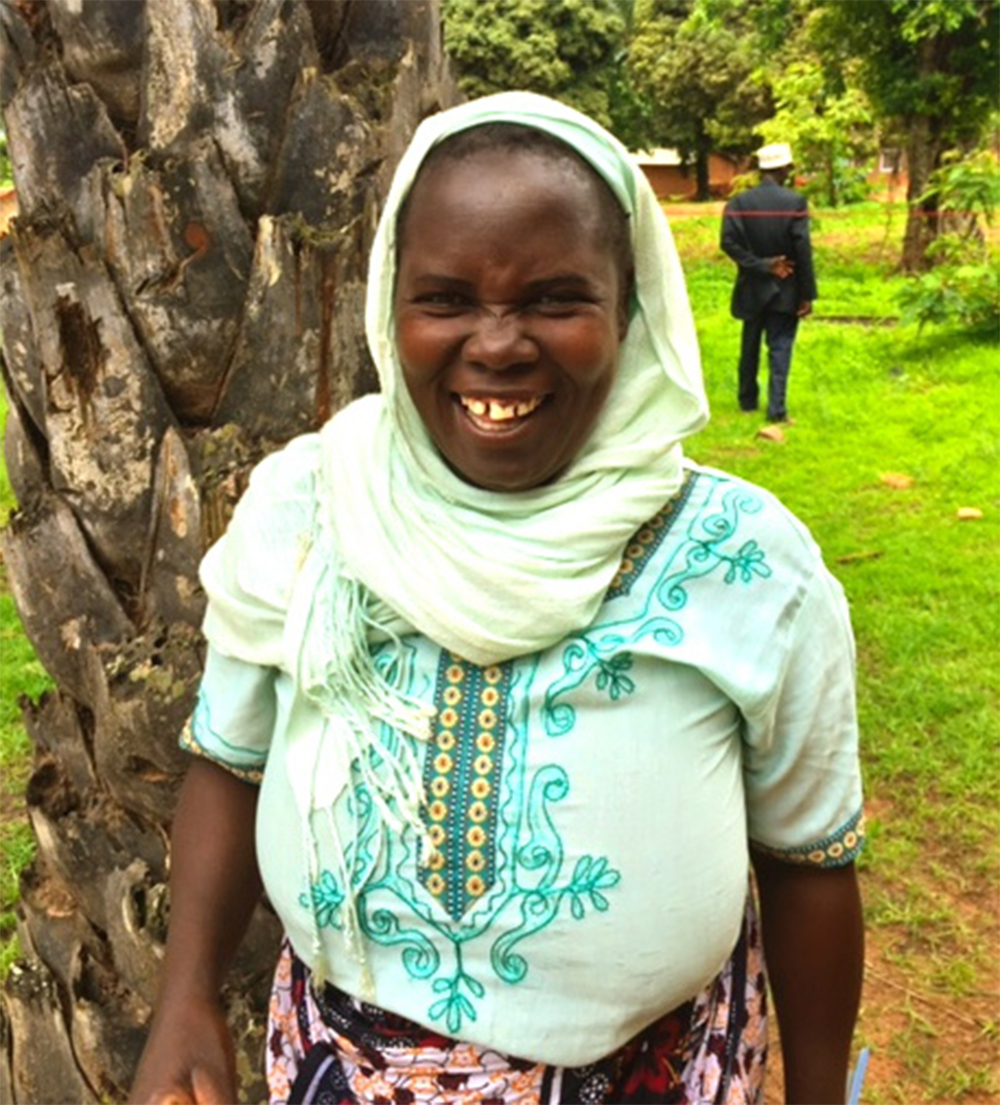
• Seed Change Tanzania
1. Improve productivity of smallholder oil palm farmers in Kigoma
2. Promote sustainable agricultural practices
3. Lift farmers out of poverty by introducing improved, high-yielding trees and farmer education to the region.
Seed Change aims to invigorate the Kigoma oil palm market, strengthen the palm oil value chain, and catalyse agricultural business throughout Kigoma.
We see the major impediment to development of the palm oil supply chain (and livelihood development of oil palm farmers) as the low-yielding local variety of trees, lack of farmer education, and lack of modern palm oil industry. By focusing on improving tree yields paired with farmer extension services and RSPO certification - the palm oil supply chain can be revolutionized in Tanzania to support sustainable practices while improving the livelihoods of oil palm farmers.
The four outcome KPIs of our project are:
1. Increase incomes and improve livelihoods for smallholder farmers. Farmers currently earn an average of $275 from their less than 1 hectare farms. We want to work with farmers through training and provision of high-yielding seedlings to increase incomes while promoting zero-land use change.
2. Increase oil palm yields in the Kigoma region through better farming practices and introduction of tenera seedlings, this will increase farmer yields by 1,145%.
3. Support the development of strong farmer associations. We currently work with 40 farmer associations and want to continue to support these groups and add other groups to our network.
4. Assist associations to ensure they are using sustainable practices. We currently train 827 farmers on sustainable practices inline with RSPO Principles & Criteria in preparation for future RSPO certification.
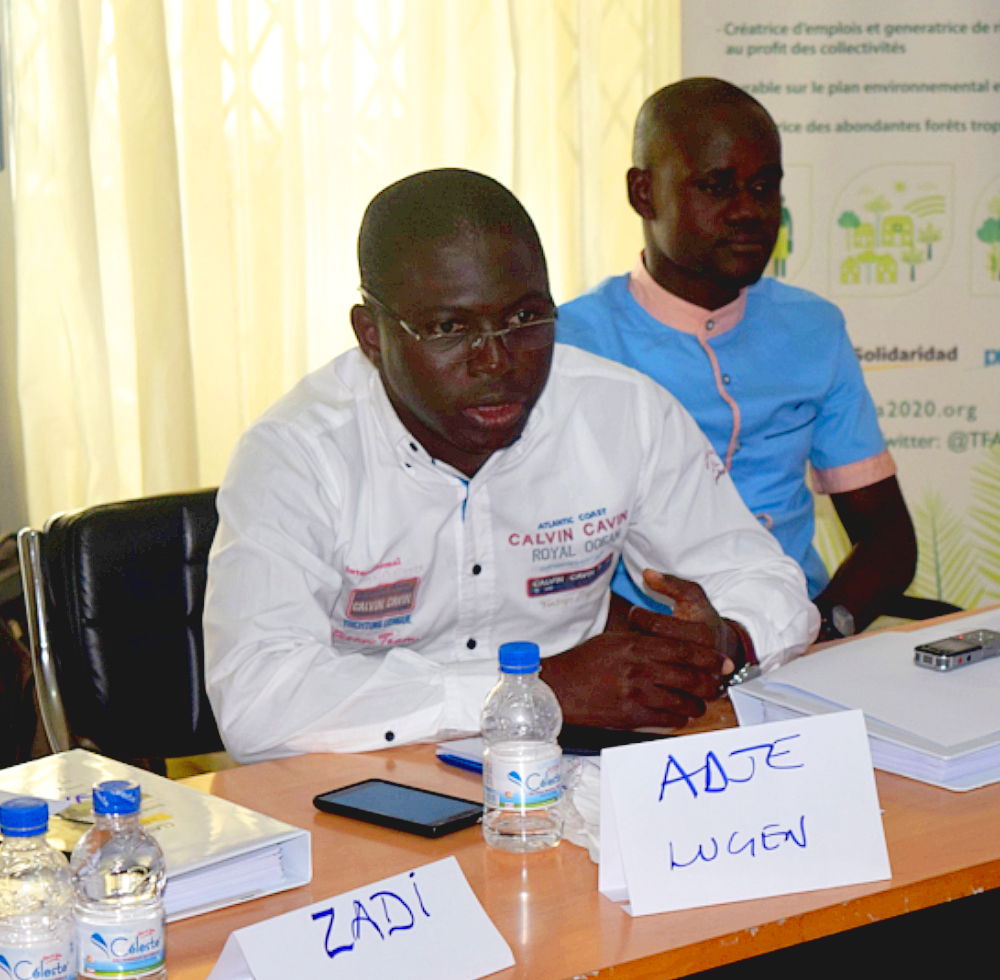
• Cooperatives In Cote D’ivoire
About 70% of the FFB production is provided by 40 000 smallholders who operate on 180,000 ha and are grouped into 30 cooperatives.
In 1995, these cooperatives were set up following the privatization of PALMINDUSTRIE (state company responsible for developing the oil palm sector and in charge of external services to the smallholders from 1963 to 1995). The smallholder’s yields ranged between 12 and 16 tons per hectare per year during that period.
After privatization, cooperatives have taken over the extension delivery systems to the farmers. This support involved FFB collection from plantations to mills, agronomy, roads maintenance and inputs provision.
Twenty years after, the results are mixed with lower yields (4 to 8t/ha). This low productivity is due to poor agronomy, limited use of fertilizer, limited renewal of old plantations, losses during the peak production and mainly the poor management of cooperatives.
Only 10% of cooperative, run correctly in 2012 and currently no plan is implemented to effectively strengthen the capacity of these groups of smallholders. Without support these cooperatives go directly out of the business and famers will be devoid of any assistance.
With increasing demand for RSPO certified palm oil (3 of 5 major oil palm companies are in the way to obtain RSPO certification in 2016-2017) coupled with the fact that smallholder cooperatives supply more than 70% of FFB required by oil palm processing mills, cooperatives will be left out of the supply chain if they didn’t attain RSPO certification. These groups however, don’t have the capacity to pay for assistance to obtain RSPO certification.
To ensure that the operational capacity of these groups is adequately strengthened and they are integrated into the RSPO certified oil palm supply chain, funding is being sought from the RSSF strengthen the quality of external delivery systems for increasing the productivity of smallholder’s farms and obtain RSPO certification group
This project will cover an area of 15 000 ha with 5 000 farmers and it implementation will influence the awareness of RSPO in Côte d’Ivoire, which is the only CPO exporter in West Africa.
The main components of this project are:
A- Capacity building program of Cooperatives
B-: Training on (BMP)
C: RSPO Group Certification
D: Development of certified FFB/CSPO market
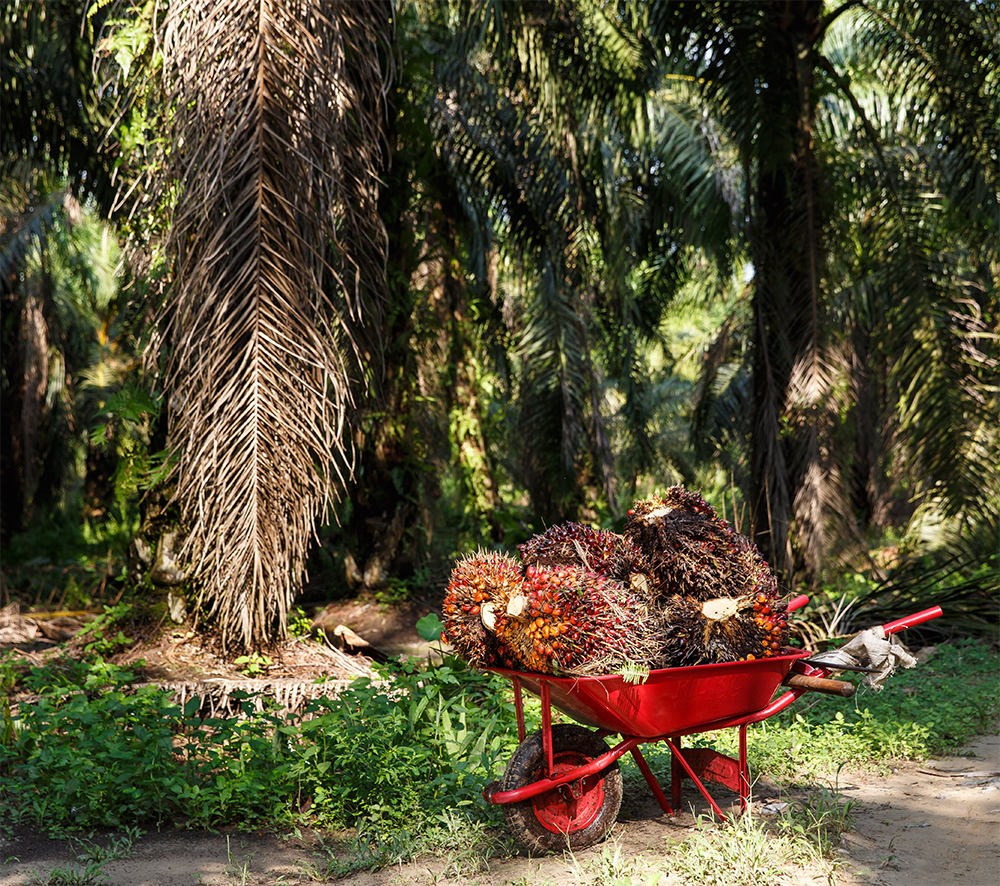
• Gapoktan Tanjung Sehati
RSSF mendukung Gapoktan Tanjung Sehati untuk melakukan surveilans ke tiga untuk periode tahun 2016. Dengan beberapa aktifitas :
- Mempersiapkan Gapoktan Tanjung Sehati dalam surveilans
- Pembiayaan kunjungan auditor
- Pemenuhan temuan-temuan auditor
Pencapaian :
Telah dilakukan surveilans pada bulan Februari 2016, dan pada tanggal 17 Juli 2017, sertifikat untuk surveilans ke tiga telah dikeluarkan oleh TUV Rheinland.
[English]
RSPO Smallholder Support Fund (RSSF) supported Gapoktan Tanjung Sehati to conduct the third surveillance in the 2016 period with the following activities:
- Group's preparation towards the surveillance audit
- Financing auditor visits
- Corrective action from audit finding
Achievement:
Surveillance was conducted in February 2016 and the certificate was issued by TUV Rheinland in July 2017.
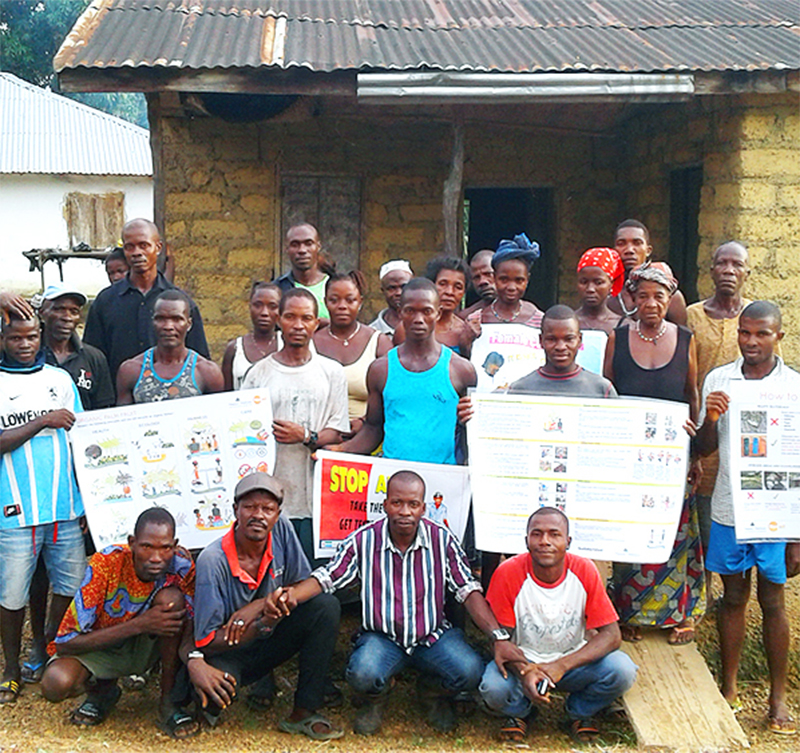
• Nedoil Ltd Farmers Cooperatives
The fruit is collected from its own plantations and from external suppliers adhered through a smallholder program. Currently, Nedoil has a CPO mill of 3tons/hour capacity, 71.5 ha of oil palm concession and 1842 smallholders (4681,10ha) network acting as oil palm fruit suppliers. This network covers 5 chiefdoms: Tane, Gbonkolenken, Valunia, Niawa Lenga and Bagbe.
The expansion plan of Nedoil consists in increasing the number of smallholder members certified to the RSPO standard, the objective is 3000 farmers certified by the end of Yr. 2 (end of the project). The expected project outcomes are described below:
- RSPO certification of 3000 independent smallholders.
- 3000 Independent smallholders are trained in all aspects relevant to an RSPO certification.
- Smallholders are trained on good agriculture practices and good management practices to improve FFB yields.
- Independent smallholders are trained in biodiversity conservation and environmental impact mitigation.
- Independent smallholders are organised into FFS/FBO associations and participate in an internal control system.
- Independent smallholders get land rights in Sierra Leone.
- Independent smallholders are successfully certified against the RSPO standard (2000 farmers by the end of year 1 and additional 1000 farmers by the end of year 2.

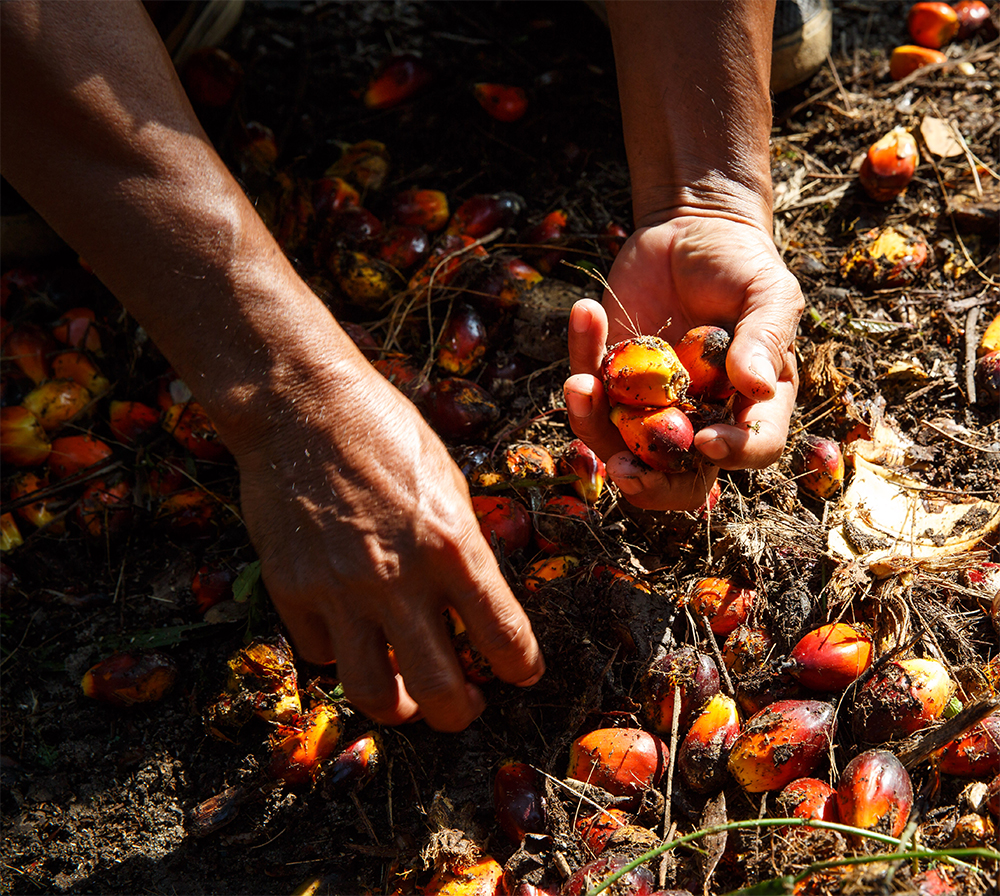
• Farmers Association In Ghana
With increasing demand for RSPO certified palm oil coupled with the fact that smallholder farmers supply more than 70% of FFB required by oil palm processing mills, smallholders will be left out of the supply chain if they did not attain RSPO certification. These farmers however, do not have the capacity to pay for assistance to obtain certification. To ensure that they are integrated into the oil palm supply chain, funding was sought from the RSPO Smallholder Fund to assist 2000 independent smallholder farmers in Ghana to go through the RSPO certification process.
The project, which aims at integrating 2000 independent smallholder farmers in the sustainable palm oil supply chain, was implemented in 4 out of 6 oil palm zones in Ghana. The main activities implemented include;
- Formation of 15 recognizable smallholder groups, 10 of which are RSPO members
- Sensitization of smallholder farmers on RSPO Principles and Criteria
- Establishment of over 100 Best Management Practices (BMP) plots on selected smallholder farms which will serve as farmer field schools
- Training of farmers in good agricultural and sustainable practices for oil palm cultivation using simplified training materials
- Established Internal Control Systems Units within the groups
- GIS mapping of farms to establish traceability systems
The expected results of the project were as follows;
- 10 independent smallholder groups capable of lobbying for government support formed
- At least 150% increase in yields for at least 2000 independent smallholder farmers by end of project
- At least 2000 independent smallholder farmers attained RSPO certification by end of project
- 50 Best Management Practices plots (demonstration plots) established
2200 smallholder farmers trained in best management practices for oil palm cultivation
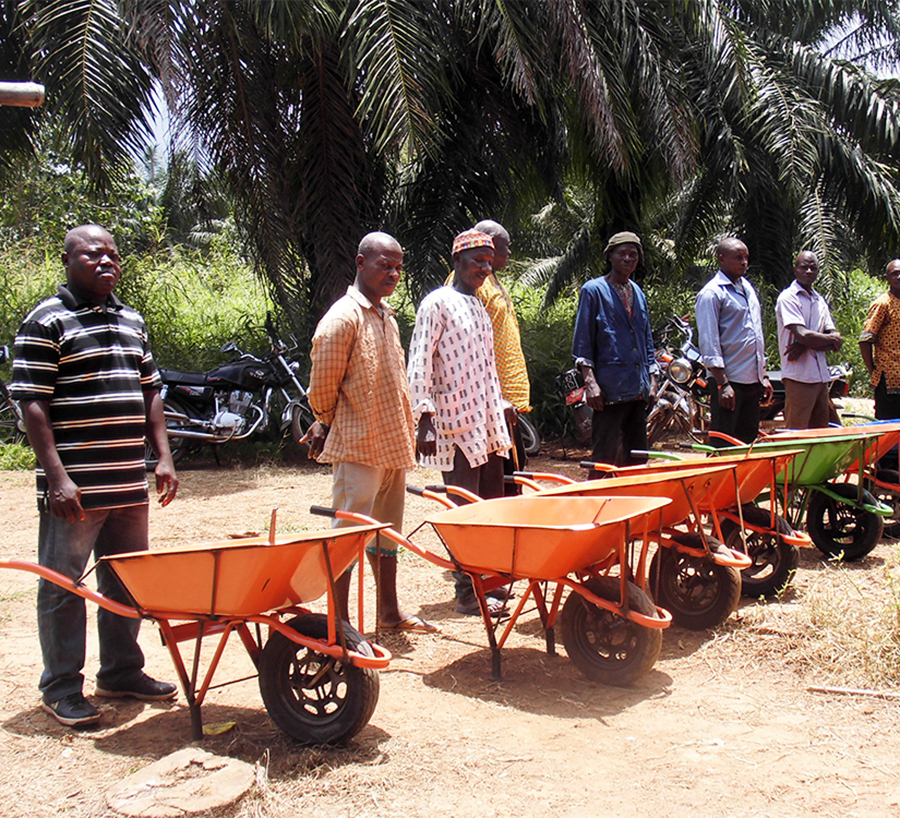
• Nalda Multipurpose Cooperative /Opgan
The project therefore is supporting these farmers to improve upon their yields and incomes through training and demonstration of best management practices using the farmer field school approach. Farmers are also been supported to go through RSPO certification to open market opportunities for them. These smallholders will be out of the international palm oil supply chain if they did not attain RSPO certification by 2017 as the major buyers of CPO from Nigeria have set 2017 as the cut-off date after which they will not buy non-certified CPO. The Project therefore aims to make sustainable agricultural practices the norm for at least 1,000 independent smallholder farmers through RSPO Certification by the end of project.
- 20 independent smallholder groups capable of lobbying for inputs and extension support services by the end of project.
- At least 75% increase in yields and incomes for at least 1000 independent smallholder farmers by end of project.
At least 1000 independent smallholder farmers attained RSPO certification by end of project.
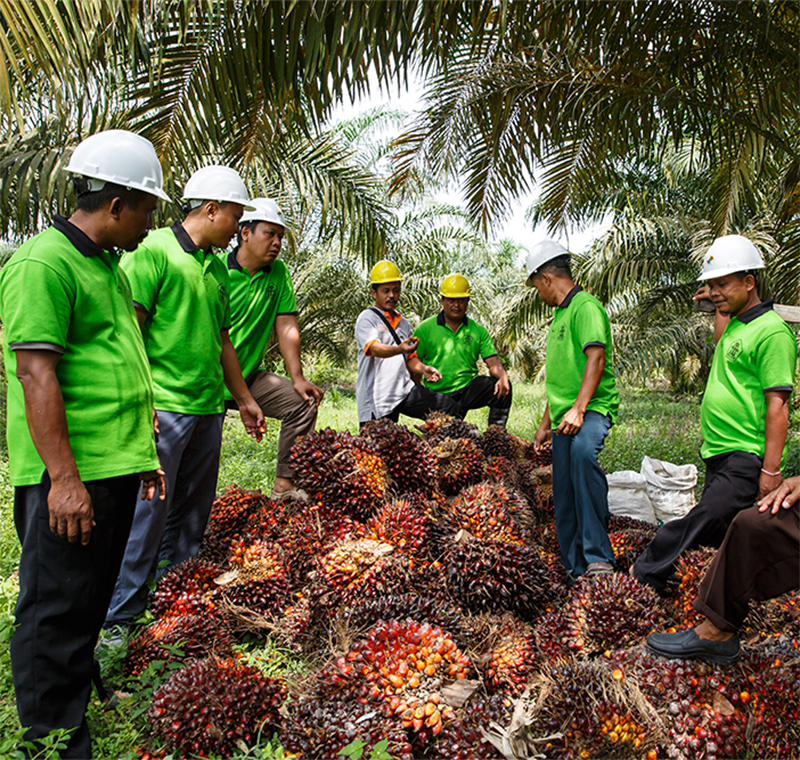
• Asosiasi Petani Sawit Swadaya Amanah

• WAGS Johor
Supply Chain Partner
Through our experience with RSPO Group Certification, we now have a better understanding of not only the challenges of small producers but also how to effectively work with the different stakeholders in the palm oil supply chain; dealers, traders, mills, refiners and buyers.
We are also working with local palm oil mills to implement systems and approaches to progressively increase the volume of traceable palm oil and to meet the “No Deforestation, No New Development on Peat and No Exploitation” requirements of sustainable palm oil production.
Expected Outcome: Sustainable agriculture enabled through a network of self-supported extensions providers working in a continual improvement system. Recognises that Certification is not a goal, but part of a process, to work through challenges, unlock opportunities to promote change at a local level - for social and environmental benefits - for all.
Key Performance Indicators (KPIs): Progressive increase of WAGS-supported producers (area and production), connected through local (supply chain partners) and receiving palm oil refineries.
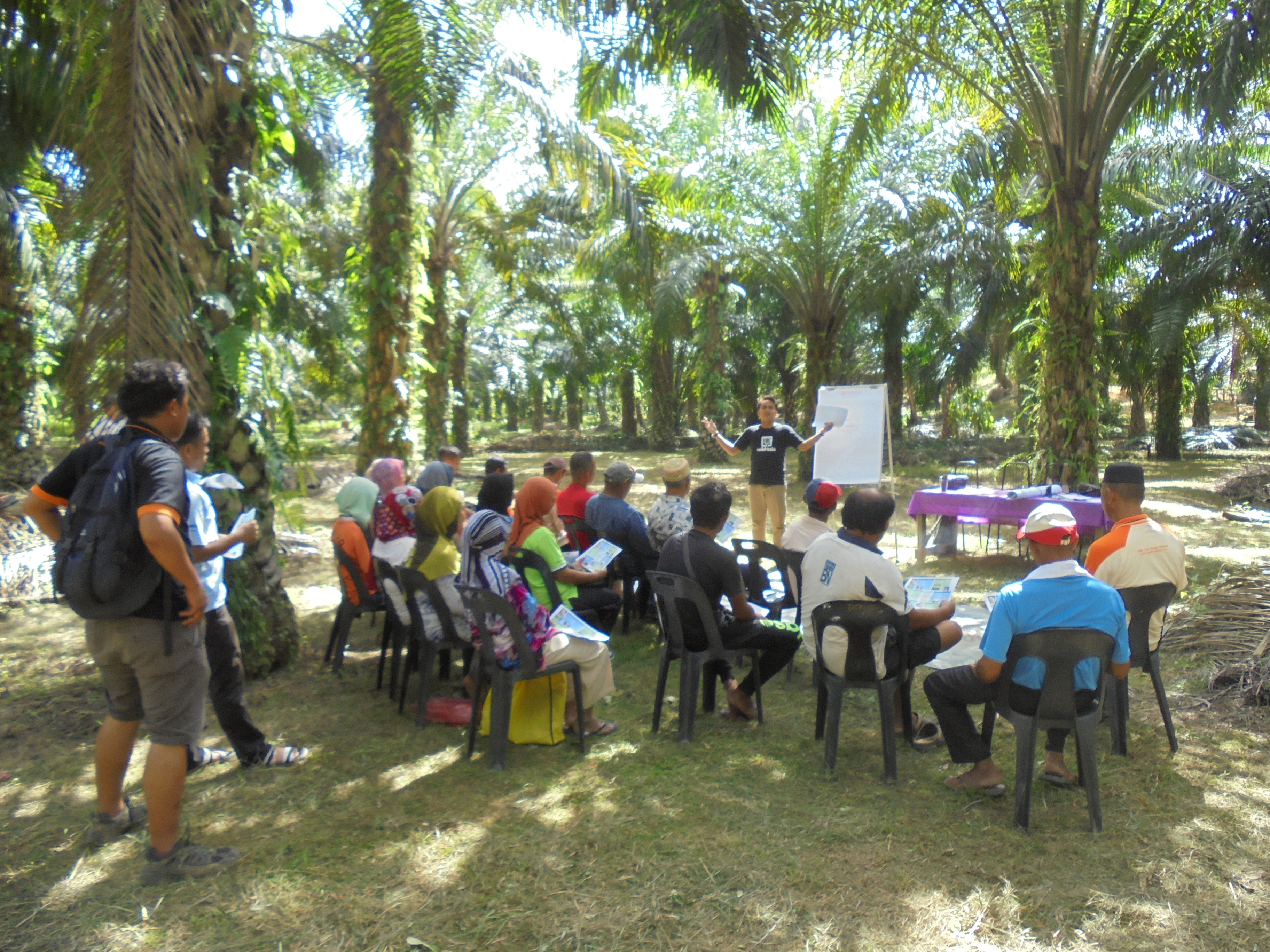
• WAGS Sabah
Supply Chain Partner
Through our experience with RSPO Group Certification, we now have a better understanding of not only the challenges of small producers but also how to effectively work with the different stakeholders in the palm oil supply chain; dealers, traders, mills, refiners and buyers.
We are also working with local palm oil mills to implement systems and approaches to progressively increase the volume of traceable palm oil and to meet the “No Deforestation, No New Development on Peat and No Exploitation” requirements of sustainable palm oil production.
Expected Outcome: Sustainable agriculture enabled through a network of self-supported extensions providers working in a continual improvement system. Recognises that Certification is not a goal, but part of a process, to work through challenges, unlock opportunities to promote change at a local level - for social and environmental benefits - for all.
Key Perormance Indicators (KPIs): Progressive increase of WAGS-supported producers (area and production), connected through local (supply chain partners) and receiving palm oil refineries.
You can access more information on smallholder projects by clicking “read more” once you login to the platform.
To express interest in supporting a smallholder project, please click the button below.
If you are an organisation that provides services or can support oil palm smallholder groups in need of assistance, we invite you to participate in this platform.
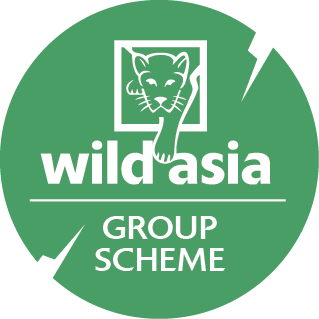
• Wild Asia
You can access more information on facilitator details by clicking “read more” once you login to the platform.
If you would like to have your project displayed on the platform, please click the button below.
If you are a market player in the oil palm industry and would like to support the inclusion of smallholder groups in the system,
either financially or non-financially, we invite you to participate in this platform.
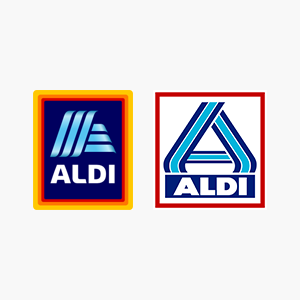
• ALDI SOUTH Group
Through Farmer Field Schools (FFS), approximately 2,611 palm oil smallholders received training. Educational flip boxes, leaflets and posters in community areas helped sustain the learnings throughout the community.
In order to restore forestry in the project area, 17.532 tree seedlings were cultivated in nurseries and distributed to individual farmers, planted in schools, on the borders of sacred forests and restored Natural Reserve areas. This corresponds to approximately 250 hectares of restored forest land.
Various partners and stakeholders were involved in the project, including the Inter-professional Association of Oil-Palm Industry (AIPH). This institution has fully endorsed the project’s outcomes and is now installing tree nurseries in other palm oil-growing regions.
Despite the many challenges facing the project like the early hesitations of targeted smallholders, COVID-19 restrictions, and political tensions, 90% of the community participants, including community leaders and the youth, were satisfied with what they learnt from the project and with its positive outcomes in the area.
You can access more information on facilitator details by clicking “read more” once you login to the platform.
If you would like to have your project displayed on the platform, please click the button below.



